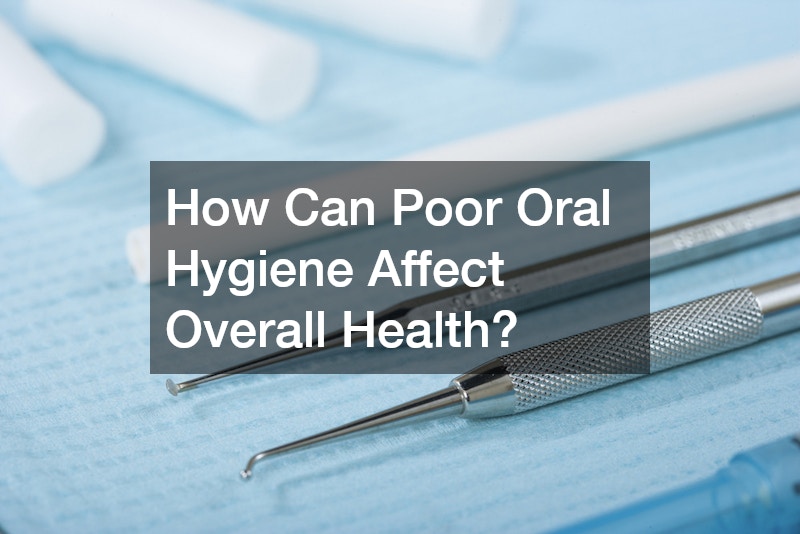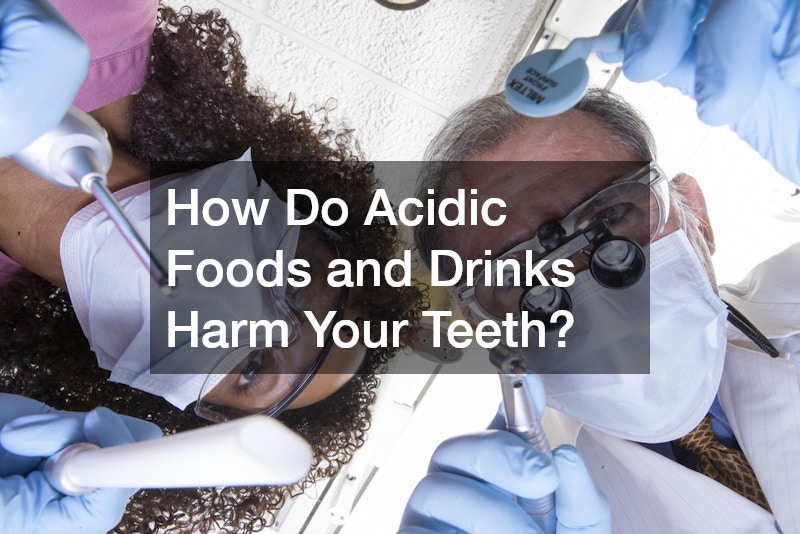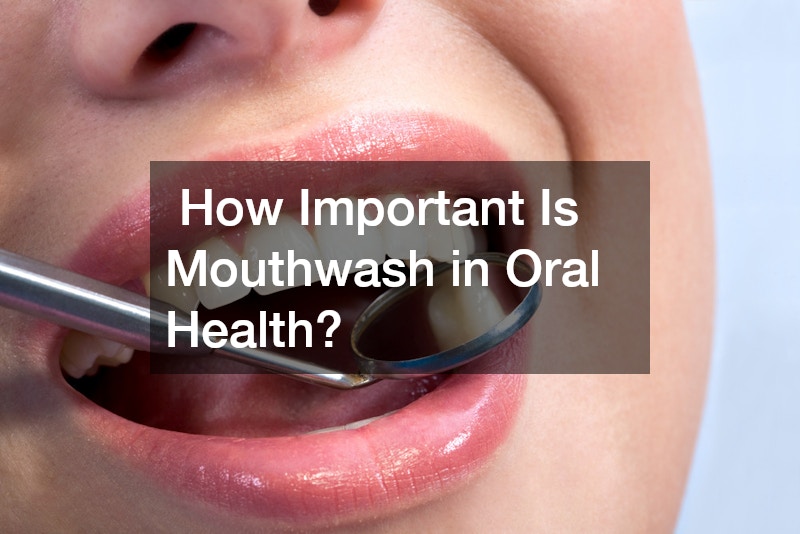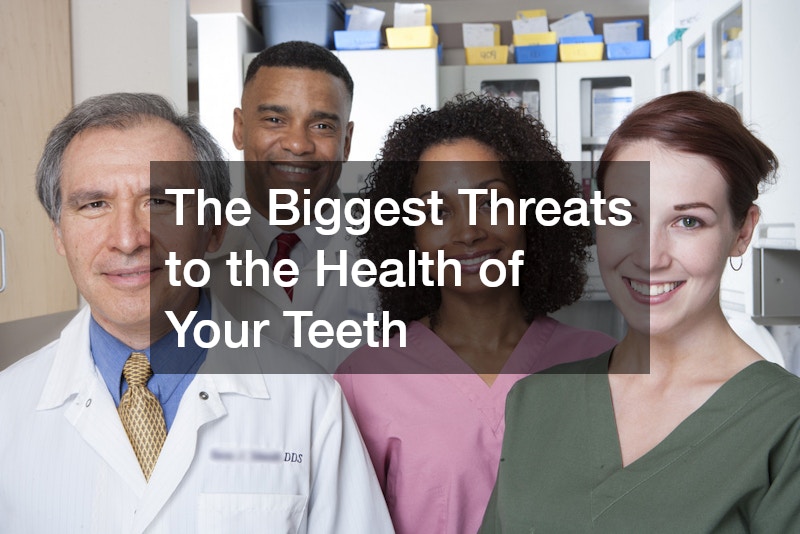
Maintaining healthy teeth requires understanding the various threats that impact dental health and taking proactive steps to counteract them. Dental health is not just about having a bright smile; it is crucial for overall well-being and can prevent numerous health complications. Unfortunately, everyday habits, dietary choices, and certain lifestyle factors can all pose significant risks to oral health. By understanding these threats and applying the best practices for oral hygiene, you can protect your teeth from decay, disease, and other issues. This guide explores some of the most common dental health threats and offers guidance on how to effectively care for your teeth and gums.
1. What Are the Most Common Causes of Tooth Decay?

Tooth decay is one of the most prevalent dental health issues, affecting individuals of all ages. Sugary foods and drinks are primary culprits, as sugars provide a food source for harmful bacteria that produce acids, which wear down tooth enamel. Limiting sugar intake and seeking affordable dental care are key steps toward reducing the risk of cavities. Maintaining regular brushing and flossing habits is also crucial, as these activities remove food particles and plaque, preventing bacterial buildup.
Oral hygiene items like fluoride toothpaste, antibacterial mouthwash, and dental floss are essential tools for protecting teeth from decay. Fluoride helps remineralize tooth enamel, making it more resistant to acid attacks. By incorporating these products into your routine, you can bolster your defenses against tooth decay and reduce the need for costly restorative treatments.
2. How Does Gum Disease Develop?
Gum disease, also known as periodontal disease, is a serious threat to dental health that begins with mild symptoms but can progress rapidly if untreated. Early signs of gum disease include red, swollen gums that bleed easily during brushing or flossing. Visiting your local dentist office regularly helps detect gum disease in its early stages, allowing for prompt treatment. Without proper care, gum disease can lead to tooth loss and other severe complications.
Preventive measures like regular brushing, flossing, and professional cleanings can help keep gum disease at bay. Specialized oral hygiene items, such as electric toothbrushes and water flossers, are highly effective for maintaining gum health. These tools offer a thorough cleaning that can reach below the gum line, preventing plaque buildup and reducing the risk of gum disease.
3. How Can Poor Oral Hygiene Affect Overall Health?

Neglecting oral hygiene can have consequences beyond the mouth, as studies have shown a link between oral health and heart disease. Bacteria from the mouth can enter the bloodstream and contribute to inflammation in the arteries, increasing the risk of heart disease. This connection underscores the importance of dental health in relation to overall health. Cosmetic treatments like veneers can improve your smile, but maintaining strong oral hygiene is equally important for systemic health.
Individuals with diabetes are also at higher risk for oral health issues, as the condition makes it harder for the body to fight infections, including those affecting the gums. Choosing oral hygiene items that promote holistic health, such as anti-inflammatory toothpaste and therapeutic mouthwash, can support both dental and overall health.
4. What Are the Dangers of Smoking and Tobacco for Your Teeth?
Smoking and tobacco use are among the most detrimental habits for dental health. Tobacco stains teeth, damages gums, and increases the risk of gum disease, tooth loss, and oral cancer. Regular visits to dental offices for cleanings and exams can help identify and mitigate some of these risks. While quitting smoking is the best course of action, using oral hygiene products designed for smokers, such as whitening toothpaste and mouthwash with antiseptic properties, can help minimize the damage.
Smokers should also be diligent about maintaining good oral hygiene, as tobacco can compromise the immune response in the mouth, making it more difficult for the gums to heal after an infection. With the right hygiene practices and support from a dentist, smokers can reduce the adverse effects of tobacco on their dental health.
5. How Do Acidic Foods and Drinks Harm Your Teeth?

Acidic foods and drinks, such as citrus fruits and soda, can erode the enamel on your teeth, leading to sensitivity, discoloration, and increased vulnerability to decay. Understanding the process of tooth erosion is crucial, as this condition is often irreversible once the enamel is worn away. Consulting restorative dentists can provide options for protecting weakened enamel and addressing erosion.
Adopting protective measures, such as drinking acidic beverages through a straw and rinsing your mouth with water afterward, can help preserve your enamel. Oral hygiene items that support enamel health, such as remineralizing toothpaste, are also beneficial for counteracting the effects of acidic foods. These products can help restore minerals to your teeth, making them more resilient against future acid attacks.
6. What Are the Effects of Grinding Teeth?
Bruxism, or teeth grinding, is a common condition that can lead to significant dental damage if left unaddressed. People who grind their teeth often experience symptoms like jaw pain, headaches, and worn-down enamel. Recognizing the signs of bruxism early is essential, as it allows for timely intervention. Treatments such as dental implants may be necessary for those who experience tooth loss or severe damage from grinding.
Preventive measures like using a mouthguard while sleeping can protect your teeth from further damage. Special oral hygiene items, such as night guards and dental devices, provide a barrier between the teeth and help reduce the impact of grinding. By addressing bruxism, you can prevent costly dental repairs and preserve your natural teeth.
7. How Important Is Mouthwash in Oral Health?

Mouthwash is a valuable addition to any oral hygiene routine, offering benefits such as fresher breath and reduced bacteria in the mouth. However, it is essential to understand both the benefits and limitations of mouthwash. While mouthwash can be beneficial, it should not replace brushing and flossing. For individuals seeking affordable dental clinics, mouthwash is an accessible option that enhances oral care without significant costs.
Choosing the right type of mouthwash for your needs can improve your dental health. Antibacterial mouthwashes are particularly effective for people with gum disease, as they reduce harmful bacteria levels. By integrating mouthwash into your daily routine, you can strengthen your oral hygiene practices and protect your teeth from decay.
8. Are Natural Oral Hygiene Items Effective?
Natural oral hygiene products have gained popularity, but it is important to evaluate their effectiveness compared to conventional products. Popular natural alternatives include items like charcoal toothpaste, coconut oil pulling, and herbal mouthwash. While these products may offer benefits, dental services recommend being cautious with natural alternatives, as some may lack scientific support for their efficacy.
Certain natural products can complement conventional oral hygiene, but they should not replace proven treatments. Consulting a dentist before using natural items can help you determine which products are safe and effective. By choosing the right combination of natural and conventional products, you can enjoy a well-rounded approach to oral care.
9. How Does Aging Affect Dental Health?
As individuals age, they often experience unique dental health challenges, such as weakened enamel, gum recession, and increased risk of tooth decay. Dental conditions can become more prevalent among older adults, necessitating regular check-ups and preventive care. In some cases, dental implants may be recommended to replace missing teeth, providing a durable and long-lasting solution for senior patients.
Maintaining oral hygiene in later life requires adapting to these changes and using specialized oral care products designed for seniors. Toothbrushes with softer bristles, toothpaste for sensitive teeth, and mouthwash tailored to dry mouth are all helpful items for older adults. With the right approach, seniors can maintain healthy teeth and gums well into their golden years.
10. How Can I Protect My Teeth During Sports and Physical Activities?
Participating in sports and physical activities poses a risk of dental injuries, including chipped or knocked-out teeth. Wearing a mouthguard is one of the most effective ways to prevent dental injuries in contact sports. Dentists recommend custom-fitted mouthguards for maximum protection, as they offer a secure and comfortable fit.
In addition to wearing protective gear, athletes should maintain good oral hygiene to keep their teeth strong and resilient. Specialized oral hygiene items, such as fluoride toothpaste and antiseptic mouthwash, can further support dental health for active individuals. By taking preventive measures, you can enjoy your favorite sports without compromising the health of your teeth.
Protecting your dental health requires understanding the various threats and addressing them with effective oral hygiene practices. From avoiding sugary and acidic foods to using the right oral care products, there are numerous steps you can take to keep your teeth healthy. Regular visits to dental offices for check-ups and cleanings are also essential for maintaining optimal oral health. With the support of a local dentist office, you can create a personalized oral care plan that suits your needs and promotes long-lasting dental health. By staying proactive and informed, you can protect your teeth from decay, disease, and other threats, ensuring a bright and healthy smile for years to come.

